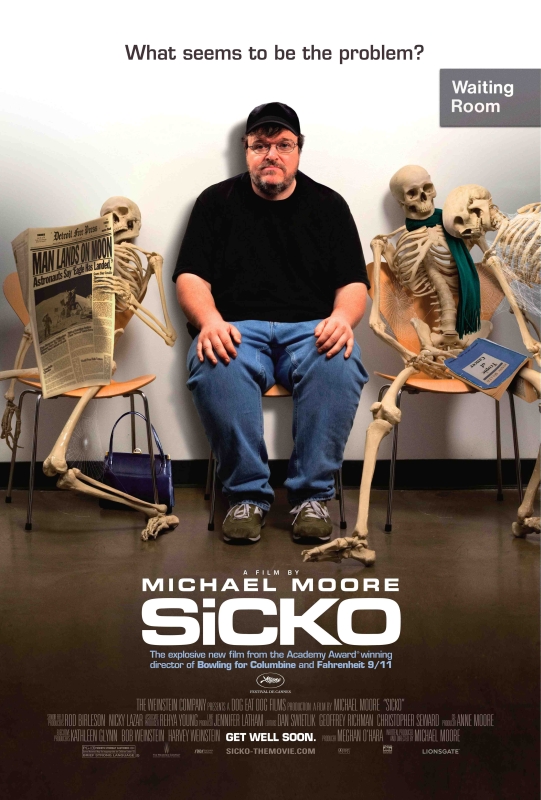Recently I brought myself around to seeing Michael Moore's controversial documentary, Fahrenheit 9/11, for the first time. Released in 2004, a little over a year after the invasion of Iraq, the film examines the first three and a half years of the Bush presidency, beginning with the election controversy in Florida, and moving into September 11, 2001 and its aftermath.
I won't try to say that Moore's account is fair and even-handed, or that there is no liberal bias here. If you want the straight facts to make up your own mind on this issue, then go somewhere else first, or be sure to find an equally conservative source.That said, this documentary was not necessarily made with the objective of scrupulously reporting all of the facts. It focuses on the facts that support the liberal position, while downplaying those that support the conservative viewpoint. (If you've seen it, did you notice that it features interviews with people opposed to the war, but uses brief soundbites from those who support it?) This movie was made to support a point of view.
However, as I watched, I noticed that there was an entirely separate message that transcended politics. One of Moore's most frequent accusations was that people simply rolled over and allowed the Bush administration to accomplish its agenda unhindered. Following the terrorist attacks of 9/11, the American people as a whole put their trust behind the President, without questioning any of his actions. One scene featured Brittany Spears saying to do just that. The press was accused of not scrutinizing the administration. The Democrats, now well known as the party that wants to leave Iraq as soon as possible, largely supported Bush's initiatives, including the Patriot Act and the Iraq War resolution, without even reading them. Because of this willingness to entrust President Bush with our national security five-plus years ago, we find ourselves in a conflict in Iraq with no visible end, and no clear way to extracting ourselves without further damaging our position. Ladies and gentlemen, don't let this happen again.
I'm not saying you can't support a war, or a politician, or a cause. I'm not saying you can never trust a politician to make the right decision. What I'm trying to say, and what this movie helps to clarify, is that the decision to do so must be made on you own. Don't simply think that having a leader means you no longer have to think about or analyze an issue.
This goes for everyone--liberal, conservative, Socialist, Libertarian, or whatever you happen to be, no matter how much you love your elected officials, don't simply elect them so you don't have to think anymore, because that's not your job as a citizen. We closed our eyes on Bush after 9/11, and this is where we got; it could be so easy to allow this to happen again. When a politician says something, don't nod your head in approval like a brainwashed sheep, think about it. Research the issue, make up your own mind. Tell your politicians to do the same--the Iraq war resolution passed with the support of more than half the Senate Democrats, many of whom now claim that they were opposed to the Iraq war from the beginning (including Hillary Clinton). And yes, the Democrats are as much responsible for Iraq as the Republicans and the Bush administration, seeing as they sat on their hands as the executive branch produced its evidence that al-Qaeda was connected to Iraq, and that Saddam Hussein had and could use weapons of mass destruction.
America is the oldest democratic nation in the world, and democracy is based on the ability of the citizens to partake in the political process, and blindly trusting an elected official is simply not consistent with partaking. So my message to you, America, is to do your job as Americans, and join in the political process. Vote if you are old enough. Pay attention to politics and make your own mind up--don't listen to what Michael Moore or Bill O'Reilly say about an issue and think that because they think that, you should too. Don't believe for one minute that the President automatically knows what's best for the country and leave it at that, and that includes our next president, whether he be John McCain or Barack Obama. It's time for America to start paying attention to the issues again.
But don't take my word for it.






